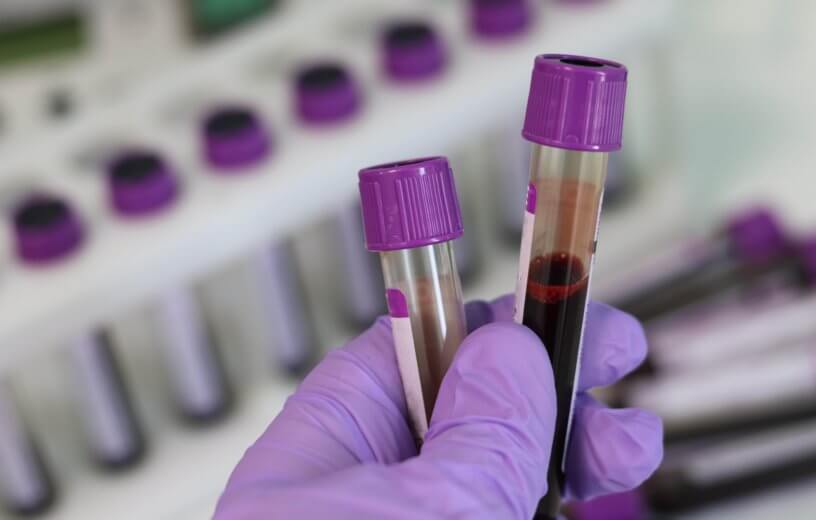PHILADELPHIA — In the United States alone, it’s estimated that over 47,000 people will die from pancreatic cancer this year. Early detection could greatly improve many pancreatic cancer patients’ chances of beating the disease, and now a new blood test has shown considerable promise in that regard.
Researchers from the University of Pennsylvania School of Medicine have just announced the development of a new liquid biopsy (blood test) that may be able to detect the most common form of pancreatic cancer in its earliest stages. Additionally, the blood test looks to be able to help doctors accurately predict the course of a patient’s pancreatic cancer and plan an appropriate treatment plan.
In a blinded experiment, the new blood test was found to be more accurate at detection than any other single biomarker, and more efficient at charting the cancer’s course than imaging alone.
This form of pancreatic cancer, known as pancreatic ductal adenocarcinoma (PDAC), is the third biggest cause of cancer deaths. It’s a brutal condition; the five-year survival rate among diagnosed patients is only 9% and most pass away within a year of the cancer’s initial detection. This is why an early detection blood test is a potential game changer. If the cancer is detected early enough, surgical options are much more viable. Once the cancer has spread past the pancreas, however, there are no effective treatment options.
“Right now, the majority of patients who are diagnosed already have metastatic disease, so there is a critical need for a test that can not only detect the disease earlier but also accurately tell us who might be at a point where we can direct them to a potentially curative treatment,” says the study’s co-senior author Erica L. Carpenter, director of the Liquid Biopsy Laboratory and a research assistant professor of Medicine, in a release.
The new blood test was designed to identify a variety of biomarkers instead of just one. These markers, including carbohydrate antigen 19-9 (CA19-9) and KRAS mutational burden, have already been linked to PDAC. Among a group of 47 study participants (20 had PDAC, and 27 were cancer free), the blood test was 92% accurate at picking out the cancer. Other biomarkers have only shown 89% accuracy.
Then, the blood test was administered to 25 PDAC patients whose imaging results indicated their cancers hadn’t spread past the pancreas. The test ended up being 84% accurate at mapping out their cancers’ future spread and disease staging. Just imaging alone is usually only 64% accurate.
The blood test still requires further testing before it can be widely implemented, but the research team are excited about what they’ve accomplished thus far.
“If validated, this test could not only provide a key tool for at-risk patients, but also a monitoring tool for patients with certain known risk factors like BRCA mutations,” Carpenter concludes.
The study is published in Clinical Cancer Research.
Like studies? Follow us on Facebook!
